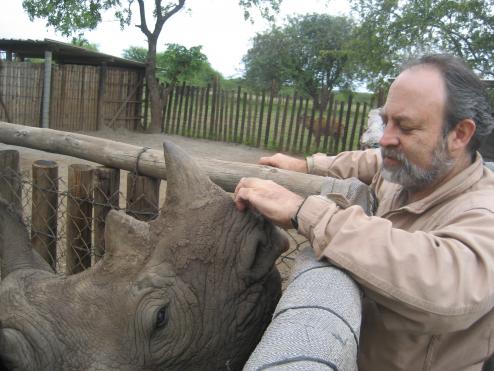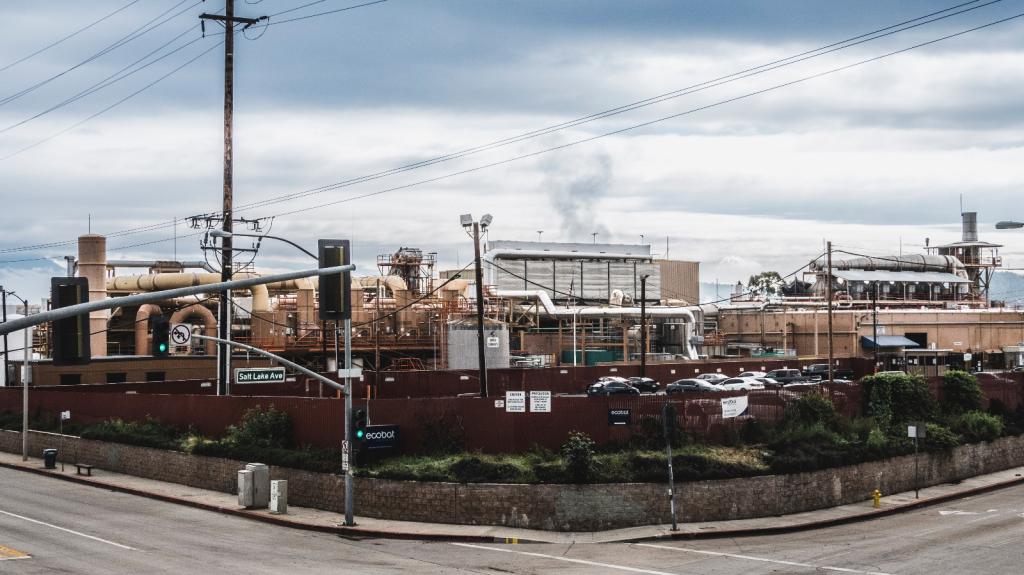It’s like the Oscars for the Patagonia set. Every April, just before Earth Day, San Francisco’s environmental community comes together at the city’s Opera House to laud six grassroots activists from around the globe, whose stories enrage and inspire. The prize offers recipients $150,000 to use as they see fit and international recognition that confers respect on their endeavors, pressures their local governments to act, and even bolsters their personal safety.
This year’s ceremony was particularly poignant as it was the first without prize founder Richard Goldman, who died last fall at age 90. Goldman and his wife Rhoda founded the prize in 1990, with one of its goals to inspire others. To that end, the ceremony is always attended by a group of local young people. The Goldmans’ adult children continue to be closely involved with the prize, continuing its legacy.
All the winners have done great work, but the stories of two particularly moved me.
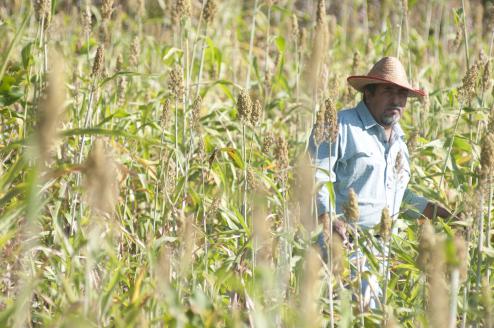 Francisco Pineda.Photo: Goldman Environmental PrizeNinety percent of El Salvador’s water resources are tainted by industrial and municipal wastewater. While exploring new gold mines, Canadian mining giant Pacific Rim sucked up all the water from the creek that Francisco Pineda used to irrigate his crops. He organized his neighbors into the Environmental Committee of Cabañas, fighting the government to rescind the company’s mining permit. The government eventually responded, halting the mine, but Pacific Rim is suing in international court, calling into question national sovereignty. Three of Pineda’s colleagues were murdered for their activism, and now he lives with round-the-clock police protection.
Francisco Pineda.Photo: Goldman Environmental PrizeNinety percent of El Salvador’s water resources are tainted by industrial and municipal wastewater. While exploring new gold mines, Canadian mining giant Pacific Rim sucked up all the water from the creek that Francisco Pineda used to irrigate his crops. He organized his neighbors into the Environmental Committee of Cabañas, fighting the government to rescind the company’s mining permit. The government eventually responded, halting the mine, but Pacific Rim is suing in international court, calling into question national sovereignty. Three of Pineda’s colleagues were murdered for their activism, and now he lives with round-the-clock police protection.
Each year at least one of the recipients has been threatened with violence. This never fails to shock me: that the powerful are willing to kill to continue polluting or deforesting, and that these activists persevere in the face of great personal risk. For these ordinary, extraordinary people, their cause becomes bigger than themselves, than even the preservation of their own lives. But to Pineda, his fight is a matter of life and death. “We can live without gold, but we cannot live without water,” he said in his acceptance speech.
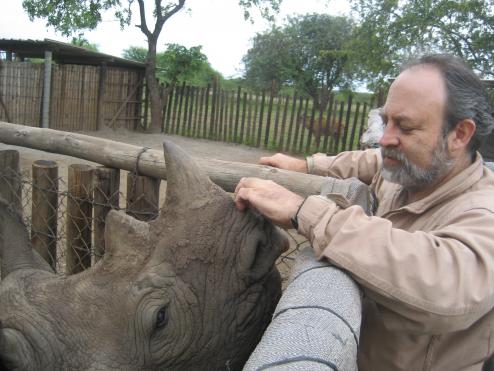 Raoul du Toit.Photo: Michelle GaddZimbabwe is a failed state whose people suffer endlessly under Robert Mugabe’s egocentricities. Against this backdrop of weak governance, corruption, and economic chaos, Raoul du Toit noticed the poaching and habitat threats to the highly endangered black rhino. He moved rhinos to a safer area, established breeding programs, and increased their population four-fold since 1992. Successful conservation requires involving the local community, and du Toit’s group educates children about environmental awareness, instills local pride that this iconic animal shares their home, and links financial support for schools to rhino births. Still, his efforts have suffered setbacks, such as when poachers killed 100 rhinos and hacked off their horns. A video showed the desecration: a bloody, minivan-sized animal on its side, legs jutting stiffly into the air, while a baby rhino stood by for days, trying to nurse. The most recent poaching victim, last week, was found with its horn hacked off its face, still alive, he told us. The audience gasped.
Raoul du Toit.Photo: Michelle GaddZimbabwe is a failed state whose people suffer endlessly under Robert Mugabe’s egocentricities. Against this backdrop of weak governance, corruption, and economic chaos, Raoul du Toit noticed the poaching and habitat threats to the highly endangered black rhino. He moved rhinos to a safer area, established breeding programs, and increased their population four-fold since 1992. Successful conservation requires involving the local community, and du Toit’s group educates children about environmental awareness, instills local pride that this iconic animal shares their home, and links financial support for schools to rhino births. Still, his efforts have suffered setbacks, such as when poachers killed 100 rhinos and hacked off their horns. A video showed the desecration: a bloody, minivan-sized animal on its side, legs jutting stiffly into the air, while a baby rhino stood by for days, trying to nurse. The most recent poaching victim, last week, was found with its horn hacked off its face, still alive, he told us. The audience gasped.
“Animals deserve better from the human race,” he said, his voice breaking. Offering us a tidbit of good news, he revealed that his organization had raised the baby and released it back into the wild, where, as a young adult, it continues to thrive.
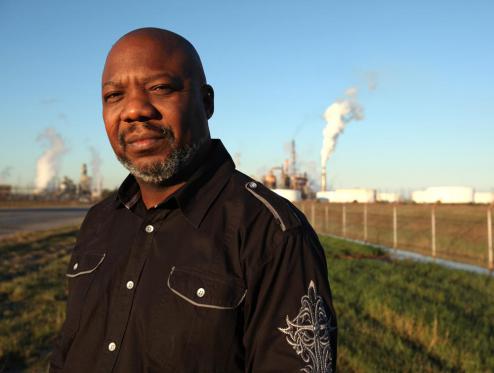 Hilton Kelley.Photo: Goldman Environmental PrizeAs always, this year’s stories are overwhelming David-vs.-Goliath tales about seemingly insurmountable odds. Goldman winners are average people who notice environmental injustices in their backyards and can’t sit idly by. Their struggles always serve as a little kick in the pants that perhaps we could all do a little more. This year’s winner from North America, Hilton Kelley, is fighting the petrochemical pollution pressed up against his hometown of Port Arthur, Texas. Wearing a striped, electric blue silk suit, he said, “When you feel compelled to fight, never think that one person can’t make a difference. One person sparks an idea. Start to work toward solving it. Many will strive to join you.”
Hilton Kelley.Photo: Goldman Environmental PrizeAs always, this year’s stories are overwhelming David-vs.-Goliath tales about seemingly insurmountable odds. Goldman winners are average people who notice environmental injustices in their backyards and can’t sit idly by. Their struggles always serve as a little kick in the pants that perhaps we could all do a little more. This year’s winner from North America, Hilton Kelley, is fighting the petrochemical pollution pressed up against his hometown of Port Arthur, Texas. Wearing a striped, electric blue silk suit, he said, “When you feel compelled to fight, never think that one person can’t make a difference. One person sparks an idea. Start to work toward solving it. Many will strive to join you.”

